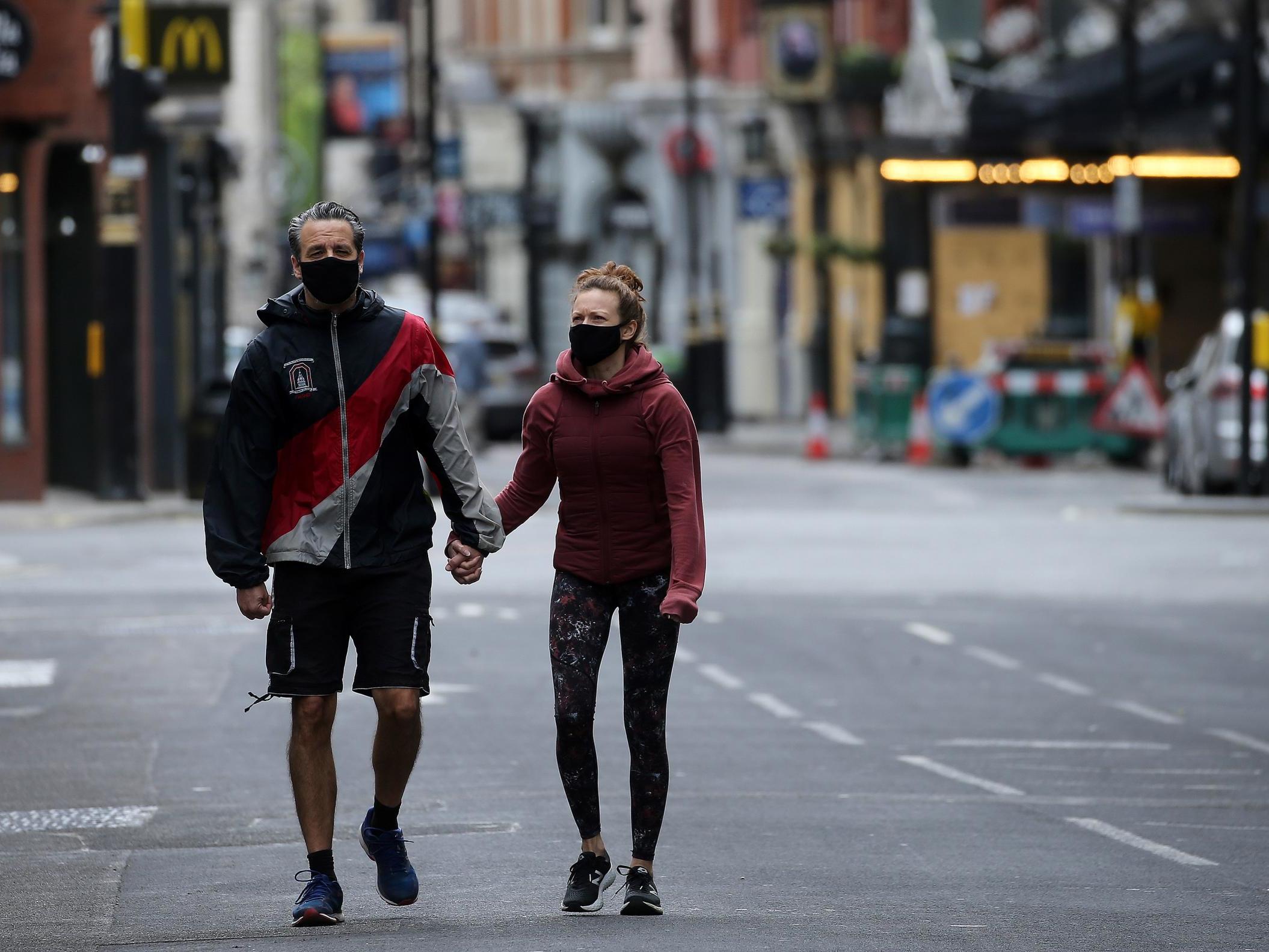Lockdown: Nearly two million Britons with lung conditions report improvement as air pollution drops
The fall in road traffic and industry activity has seen levels of harmful nitrogen dioxide more than halve in some parts of the UK, writes Samuel Lovett


Nearly two million with lung conditions in Britain have noted an improvement in their symptoms as a result of decreasing air pollution during the coronavirus lockdown, new research suggests.
A total of 12 million people suffer from respiratory issues such as asthma, chronic obstructive pulmonary disease and idiopathic pulmonary fibrosis in the UK.
According to a British Lung Foundation survey of 14,000 individuals living with these conditions, one in six (which equates to 1.94 million) reported their symptoms had eased since widespread travel restrictions were enforced across the country in late March.
The charity’s findings also reveal that close to 60 per cent said that they had noticed a decrease in air pollution during the lockdown.
In some parts of the country, the emission of nitrogen dioxide (NO2), which can inflame the lining of the lungs and lead to respiratory problems, has more than halved over the past 11 weeks as road transport and industrial activity has slowed down.
Tens of thousands of deaths every year are linked to air pollution, and it is associated with a wide range of health problems, including lung disease, heart disease, stroke, and cancer. It has a disproportionate impact on certain groups, including babies in the womb, children, people with existing lung or heart conditions and older people.
The British Lung Foundation’s survey also revealed that one in five parents of a child with a lung condition said they noticed an improvement in their child’s symptoms, with 83 per cent stating they think air pollution should be a priority for the government.
Zak Bond, policy and public affairs officer at the British Lung Foundation, said: “Air pollution can increase your likelihood of getting a lung condition and cause lasting damage to children’s growing lungs.
“Now, more than ever before, we have all become aware of how important it is to look after our lungs, and the government has a duty to ensure that as the country recovers from Covid-19,” he said. “We can continue to keep air pollution levels down, and keep pushing them lower, with the rapid introduction of Clean Air Zones, support for public and active transport, and tougher air quality laws.
“We want to see the government commit to reaching the WHO’s guidelines for fine particulate matter by 2030 at the latest.
“For those most vulnerable to the effects of air pollution, such as people with existing respiratory conditions, or those recovering from Covid-19, clean air is crucial for living well now, and in the future.”
The Taskforce for Lung Health, a coalition of over 30 different organisations, charities, professional bodies and patients, has also called on the government to implement Clean Air Zones in the most polluted towns and cities across England.
Professor Stephen Holgate, a clinical professor of immunopharmacology at the University of Southampton, said: “As one of the biggest health problems of our time, air pollution has the potential to harm everyone.
“We need to do better. Our legal limit is more lenient than the limit recommended by the international health community and people are being exposed to the harmful effects of air pollution as a result.
“It is so important that we take this opportunity to recognise the lived experiences of people with lung conditions, who are some of the most vulnerable to air pollution, and apply what we have learnt from the impact of lockdown to build a future where we prioritise clean air.”
Join our commenting forum
Join thought-provoking conversations, follow other Independent readers and see their replies
Comments
Bookmark popover
Removed from bookmarks